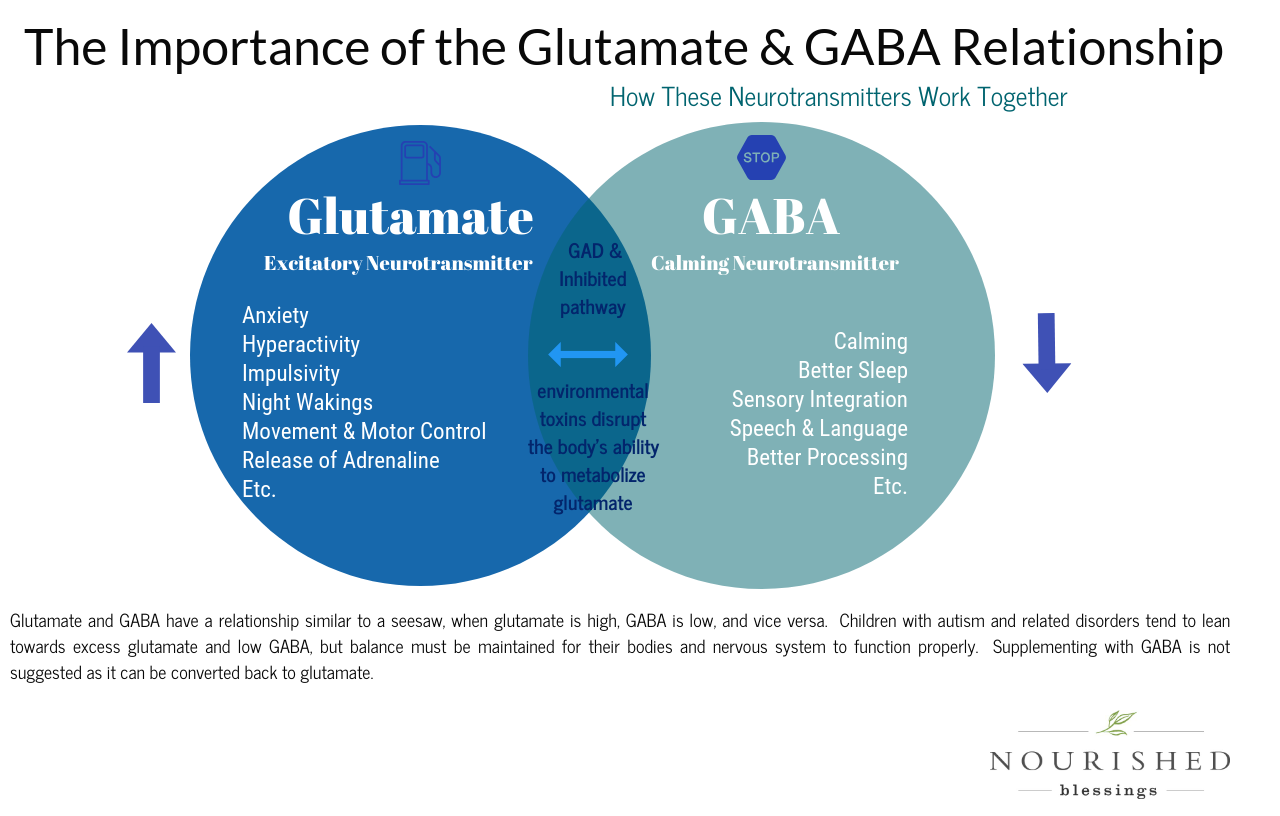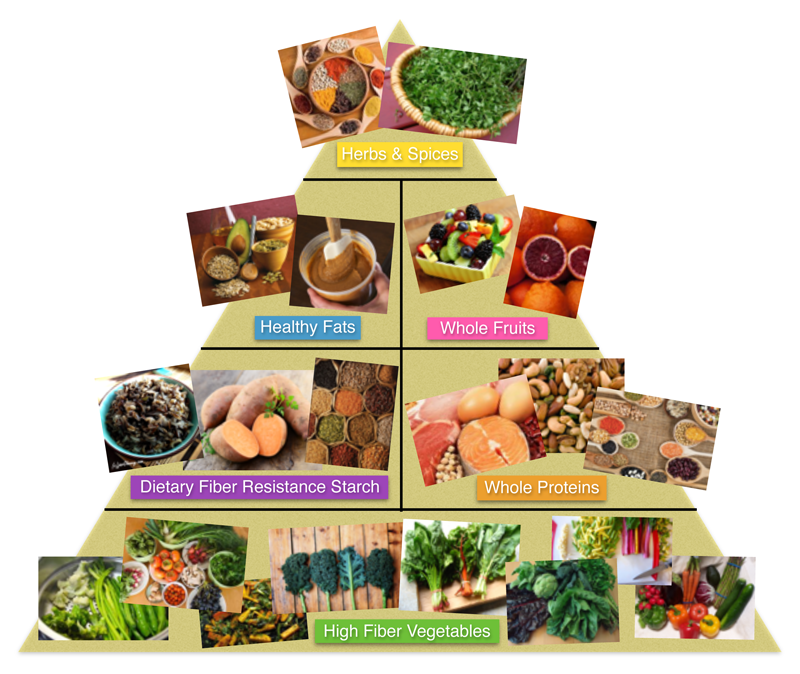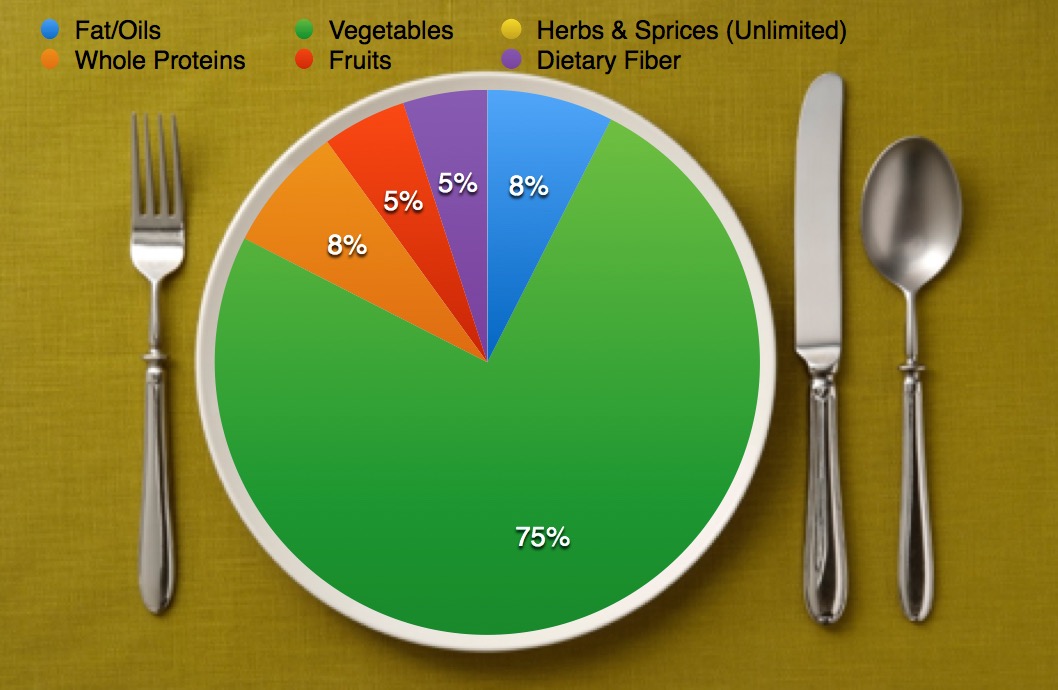Dr. Katie Reid is the founder and biochemist behind the REID Program. It was the health of her daughter that drove her to dig deeper into the various manufacturing processes that create free glutamate within our processed foods. She has since directed her research into the role of excess glutamate and various metabolites in the role of common health issues. This blog was created to share our journey restoring health with natural remedies and by following her program, The REID Program. It is not claiming to cure health issues, rather share my experience on the importance of natural health and a whole food diet. The information shared within this blog has been gathered by a mother, not a physician, and should not act as medical advice.
The Reduced Excitatory Inflammatory Diet (REID) is a lifestyle in which one works to reduce inflammation and balance neurotransmitters (particularly glutamate, which is excitatory and GABA, which is calming) through a whole food diet that emphasizes the removal of excitatory and inflammatory food sources. Some of the most prevalent excitatory and inflammatory foods are gluten, casein (class of proteins found in dairy), soy, corn (to a lesser extent) and food additives containing free glutamate and aspartate. These foods can be problematic because of their high concentration of unbound/free glutamate (glutamic acid). Unbound or free glutamate (aka MSG) is most commonly found in processed foods as a food additive or created as a byproduct of commercial food manufacturing processes. Please see the ‘What is Glutamate’ tab for more information.
Due to complex individual health issues (bio-individuality), it is hard to make a blanket statement as to what will be best for your unique needs. Individual factors such as cellular structure, metabolic capabilities, gene SNP’s, underlying infections and inflammation are just some of the factors that need to be considered. Depending on the severity and complexity of your health issues, some may see enough improvement by touching on the following REID components. In contrast, others may need to dig much deeper to get to the root of underlying intrinsic glutamate and inflammation. However, in general, REID places a strong emphasis on the following key components:
- Consuming whole foods over commercially processed foods and strictly eliminating food additives and commercially processed foods that contain excitatory substances like free glutamate (among its various names) and aspartate. In addition to the ingredients found here, it is also important to avoid gluten, casein (a class of proteins found in dairy), soy, and corn (to a lesser extent) due to the higher levels of free glutamate created as a byproduct of modern processing techniques. Many REID families have witnessed extreme behavioral reactions following the consumption of these foods, with behaviors lasting days. Fortunately, this sensitivity often decreases with more time on REID once inflammation and glutamate levels are lowered (our family included).
- It is reducing inflammation and total load through diet and environmental exposures. Common household cleaners, pesticides, herbicides, mold, EMFs, etc. should all be considered when working to lower the inflammatory load. This also includes inflammatory food sources, including refined sugar, inflammatory oils, and food dyes, and working to resolve individual food sensitivities/intolerances (for many, this includes processed grains). Glutamate signaling is intertwined with inflammation, and glutamate causes the cellular damage. When inflammation is high, glutamate levels will be high (the body also produces glutamate), and when glutamate is high, inflammation will be increased. Working to lower inflammation will improve overall health, decrease glutamate levels and help cause a break in the damaging cyclical glutamate/inflammation loop.
- Increasing consumption of vegetables, especially nutrient-rich high-fiber green vegetables. Proper nutrition can help re-establish immune balance and protect against glutamate damage. It is essential to note that raw may not benefit many just starting (especially when experiencing dysbiosis or small intestine bacterial overgrowth, aka SIBO). Again, bio-individuality plays a massive role in this. Still, ultimately high, fiber vegetables are needed to help reduce inflammation, restore beneficial gut bacteria, reduce damaging metabolites, restore balance to the body, provide a source of vitamins & minerals offering neuroprotection, and restore proper cellular health. Slowly* working to increase fiber is vital and working your way to more raw vegetables is essential. Many REID families start consuming cooked vegetables and work towards making their meals 75% vegetable-based.
- They are choosing whole foods over supplements. Society has become far too accustomed to simply popping a pill instead of getting to the root cause of the issue. Synthetic supplements carry risks and can contribute to underlying imbalances (including glutamate), ultimately causing more harm than good. Dr. Reid works with clients as they transition away from supplements to source whole food alternatives, and depending on individual needs, possibly very clean supplements. See this post on how supplements may contain free glutamate or increase glutamate through various metabolic pathways. In addition, many REID families use daily smoothies as their daily multivitamin (tracking nutritional intake can be monitored through the Cronometer App).
- Use of herbals (culinary and otherwise) to help balance the microbiome and treat sources of underlying inflammation and infection. Immune activation due to underlying infections and imbalances is one of the most prominent reasons for elevated glutamate levels. Herbs help combat underlying infections, intestinal overgrowth, and pathogens, calm microglial activation, and restore proper gut and neurological function. Many REID families start with culinary herbs, slowly work to incorporate healing herbal teas, and build up from there based on their individual needs.
- Reducing animal protein consumption. While REID is not considered a vegan diet, it does stress the importance of avoiding overconsumption of animal protein. When one consumes too much animal protein, it will lead to protein fermentation in the gut. Protein fermentation in the gastrointestinal tract contributes to increased inflammation, glutamate, and other inflammatory byproducts like increased ammonia levels, clostridia, phenols, histamine, etc. Therefore, maintaining proper proportions of food in the diet is nearly as important as removing inflammatory food sources. Many REID families consume meat as a topping/flavor enhancer or limit it to one serving of animal protein per day or less.
- Consuming a variety of whole foods. The best way to create diversity in your microflora is to consume diverse whole foods. Often, one comes to REID after attempting other healing diets and is extremely restricted to very few tolerated foods. Overconsumption of any one food will contribute to dysbiosis, inflammation, and glutamate signaling. Working to incorporate a variety of whole foods in small amounts has proven beneficial for many REID families. Many REID families find a rotation diet similar to this to be beneficial. Rotation diets should be adjusted to fit your individual needs.
- Tailoring diet to your own specific needs. Because we all have such complex individual health issues, starting with an Organic Acids Test is strongly suggested. This test may give you a glimpse into your unique health issues and how you can tailor REID, diet proportions, herbs, and natural remedies to fit your needs best. As part of this, many REID families have to reduce carbohydrates and/or eliminate grains, but this will depend on individual health. Additionally, a food sensitivity test may* be beneficial as a guide to help determine what other sensitivities your family may be struggling with. See this post on testing to learn how you can order and interpret the test. Again, diets are not one-size-fits-all, and I highly advise considering a consultation with Dr. Reid based on your specific circumstances; she is available for consultations at www.unblindmymind.org.
Many REID families incorporate and implement these components to varying degrees based on their current health issues and familial needs. While some families may have worked to clean up processed foods and incorporate a gluten-free, casein-free, soy-free lifestyle, other families have really stressed the importance of using food as medicine, making everything from scratch and digging deeper into root causes of inflammation and intrinsic glutamate. Most families see the most improvement the harder they work to use food as medicine. Our family has personally vacillated from both extremes, tweaking our version of REID based on testing, behaviors, and individual needs. Where you fall into the realm of REID depends on your individual needs and how much you are willing to put into it. Remember, it is a marathon, not a sprint, and allow yourself some grace on the journey. With diet, there will always be room for improvement. However, diet is the foundation of healing.
**Disclaimer** I am not compensated, rewarded, or encouraged by Dr. Reid to share this information. I am dedicated to helping the cause as much as possible and hope to create a grassroots effort to bring more light to the issue. My family’s experience with REID has fueled my passion for helping bring awareness to the role of excess glutamate in health issues and highlight Dr. Reid’s’ non-profit dedicated to further research, unblindmymind.org.



